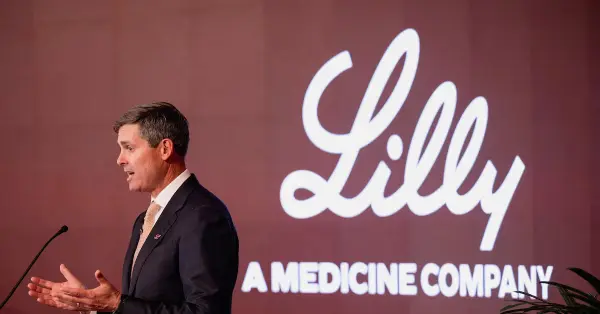September 25, 2025
Pharmaceutical giant Eli Lilly has criticized the UK’s pricing environment, calling it the “worst country in Europe” for drug prices, raising concerns over healthcare access and investment.

Pharmaceutical powerhouse Eli Lilly has issued a sharp rebuke to the United Kingdom’s drug pricing system, describing the country as the “worst in Europe” for medicine prices. The comments, made in the context of growing tension between the pharmaceutical sector and the National Health Service (NHS), highlight a widening divide over how much the government is willing to pay for life-saving treatments and how far companies will go to protect profitability.
The criticism underscores ongoing debates over the UK’s approach to health policy, balancing the need to provide affordable care for patients against the commercial realities of pharmaceutical development. Eli Lilly’s statement signals frustration at what it perceives to be an unsustainable pricing regime that discourages investment, delays patient access to innovative therapies, and risks making the UK a less attractive hub for drug development.
Industry observers note that the UK has long relied on cost-effectiveness assessments, particularly through the National Institute for Health and Care Excellence (NICE), to regulate medicine spending. While these measures are designed to ensure the NHS secures maximum value, critics argue that rigid thresholds and drawn-out approval processes prevent patients from receiving timely access to breakthrough treatments.
Eli Lilly’s intervention comes at a crucial moment. The NHS continues to face rising pressures, with mounting backlogs, tight budgets, and an aging population driving demand for more advanced—and often more expensive—medications. Against this backdrop, pharmaceutical firms are increasingly vocal about their dissatisfaction with the UK’s willingness to reimburse at higher levels.
Analysts also point out that the UK risks losing its competitive edge in life sciences if companies view the environment as hostile. While Britain is home to world-class research institutions, strong academic collaborations, and a historically robust biotech sector, pricing conflicts could deter firms from prioritizing UK launches of new drugs. This would place British patients at a disadvantage compared to their European counterparts.
The debate is not new, but Eli Lilly’s characterization of the UK as “the worst in Europe” adds urgency. The warning reflects broader industry anxiety about global shifts in regulatory and pricing landscapes. As the United States raises fees for H-1B visas, as reported in parallel policy changes, and the European Union intensifies scrutiny of drug approval procedures, pharmaceutical giants are recalibrating strategies on where and how to expand.
Critics of Eli Lilly’s stance argue that drug companies already earn substantial profits and that national governments, especially in times of fiscal strain, cannot be expected to pay inflated prices. They stress that the UK’s system ensures fairness, preventing public funds from being disproportionately allocated to a handful of drugs at the expense of wider healthcare needs.
Policymakers now face a delicate balancing act: ensuring patient access to innovative treatments while keeping the NHS financially sustainable and competitive as an investment destination. Stakeholders from both sides are calling for renewed dialogue to avoid escalation and foster long-term collaboration.
Eli Lilly’s remarks will likely reignite debate within the UK Parliament, among health campaigners, and across the pharmaceutical sector. The next steps—whether in the form of pricing reforms, revised NHS funding models, or stronger industry-government engagement—could have far-reaching implications for healthcare delivery, innovation, and the UK’s role in the global pharmaceutical ecosystem.